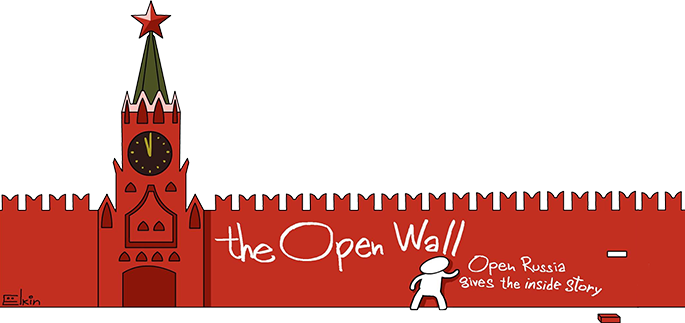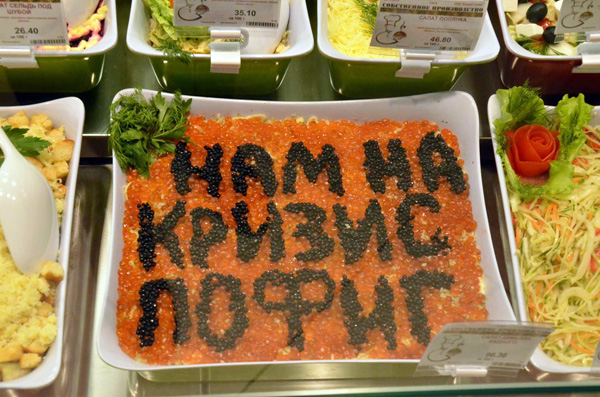Between a rock and a hard place

Between a rock and a hard place
While the solutions might seem obvious to many, they leave the Kremlin sitting somewhere between a rock and a hard place. They know only too well that agreeing to any transformative process, however necessary, will necessarily lead to their own demise.

First, some facts and figures:
During the past year, the share of Russians who keep their savings in roubles ranged from 50-58%, and in December was 52%. Even so, savings in dollars and euros are still only 5% and 3% respectively. But 43% of Russians have no savings at all. So says the Russian Public Opinion Research Center.
The Levada Center has also come up with some statistics which show that the percentage of the population affected by the economic crisis has reached some 80%.
In the last week of 2015, almost 60% of respondents saw a rise in the prices of the food products they usually buy. A fifth of respondents (22%) told pollsters that the prices of many items have grown so much that they had to give up some of their usual shopping.
On New Year’s Eve, Lenta.ru spoke to various experts who said that people have now begun to realise the depth and severity of the economic crisis, and understand that this will last a long time. “The interest of the population has switched from international problems to domestic ones,” said Leonty Byzov, a leading researcher at the Institute of Sociology. “Optimists are to be found only among those who do not think about the situation, those who believe the propaganda they hear on state TV. Social discontent is gradually forming. The truckers’ protest is just the first stage.”
People have begun to realise the depth and severity of the economic crisis
Vladimir Petukhov, head of the Center for Complex Social Research at the Institute of Sociology, says that by the end of 2015, the Crimean euphoria of 2014 had disappeared, that moment when many thought that Russia had reclaimed its place as a great power, that a land grab automatically meant the solution to all our many problems. In reality, however, the problems got worse.
“In autumn 2014, the majority of Russians we surveyed said that their daily lives had not been affected by the crisis, neither by sanctions, the devaluation of the rouble or the price of oil. Today, this bravado has gone, there is a pronounced feeling of uncertainty and anxiety. This is mainly due to economic problems, especially the increase in prices. But, unlike in previous crises, here there is the added concern for the social infrastructure, medicine and education. For example, the older generation is worried about the rapid rise in the price of medicines – for some pensioners, they are costing as much as food.”
Those are the facts and figures. Clearly, the Russian expert community is trying to convey to the authorities the deep concerns being felt – if not wholly publicly expressed – by the population. At the same time, economists have reached a consensus that without a drastic increase in oil prices and the lifting of sanctions, the only way to increase output is a radical transformation of state institutions.
But, while the solutions might seem obvious to many, they leave the Kremlin sitting somewhere between a rock and a hard place. They know only too well that agreeing to any transformative process, however necessary, will necessarily lead to their own demise.
Back to the facts, which speak for themselves. The regime is weakening. The problems facing the country are now starting to affect the population. And what this ultimately means is that the time is fast approaching when Western sanctions will be a critical issue …



